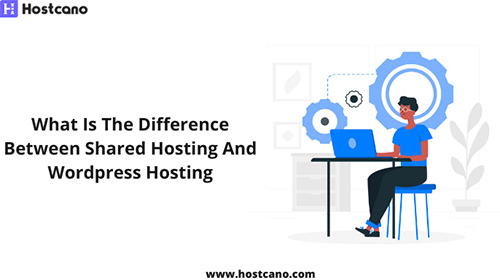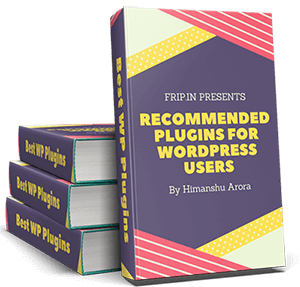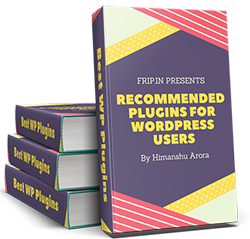 What type of hosting should you purchase? Is it shared hosting, WordPress hosting or Linux hosting any other?
What type of hosting should you purchase? Is it shared hosting, WordPress hosting or Linux hosting any other?
Currently, two of the most well-known hosting types are Shared hosting and WordPress hosting. In shared hosting, your server space will be shared with others. Whereas in WordPress hosting, a server will be optimized with a specific platform in mind.
HostCano, a well-known web hosting company provides both WordPress hosting and shared hosting. However, prior to signing up for hosting, it is essential for you to understand the difference comprehensively.
Difference Between Shared Hosting and WordPress Hosting
The following table explains the basic difference between shared hosting and WordPress hosting. Have a look at it.
border-collapse: collapse;
width: 100%;
}
th {
background-color: #4CAF50;
color: white;
}
| Points | Shared Hosting | WordPress Hosting |
|---|---|---|
| Website types | Supports all types of websites | Supports only WordPress websites |
| Loading speed | As many websites share the resources, the speed is mostly slow. | Better speed than shared hosting. |
| Safety | Not that reliable in terms of safety. | More reliable than shared hosting |
| Traffic | Can’t tackle heavy traffic | Can tackle heavy traffic |
| Cost | Costs very low | Costs higher than the shared hosting. |
Main Difference
Most people are confused about what’s better – shared hosting or WordPress hosting. Shared hosting had a big advantage – “low price.” That’s the main reason for its popularity.
Currently, well known web hosting platforms such as HostCano provide you WordPress hosting that too with a lot of inexpensive rates if we compare it a few years back.
You may not know but you can opt for a managed WordPress hosting that’s available as a shared or dedicated server. Although hosts do not often advertise it, the important thing to remember is that managed WordPress hosting offers better performance in comparison to shared hosting.
Hosting Shared
Shared hosting permits you to share your web server’s resources with multiple websites. Shared hosting is usually the most affordable option because you are sharing resources with hundreds or even thousands of sites.
HostCano provides shared hosting and the starting price is less than a dollar. This is a great price for someone just beginning a blog and doesn’t know what he/she is doing with blogging or is uncertain about having a future in it.
Shared hosting is not only for beginners. If we talk about the shared server, it’s also great for small businesses, hobby sites, blogs, developer’s sites, and personal websites. Any website with low traffic would be beneficial if it uses a shared hosting service.
Sharing Hosting: Pros and Cons
Let’s now look at how shared hosting can be beneficial or daunting for you.
The Pros of Shared Hosting
- Pricing – Shared Hosting is very affordable, starting at $2-3 per Month.
- Unlimited visitors – Shared hosts don’t limit your site’s visitors by any number.
- Infinite bandwidth – Yes, some shared hosting packages often offer infinite bandwidth & disk storage. Although access speeds may be throttled for certain usage.
- Unlimited websites – Shared hosting packages provide unlimited sites for a flat monthly fee.
- Email accounts – Webmail is a common feature of shared hosting. This allows you to create your email address, such as [email protected], for no cost.
- Unrestricted plugins– Shared hosting providers don’t usually restrict or prohibit plugins from being installed on their sites. Bluehost is one exception.
Cons of Shared Hosting
- Downtime – Your site could be taken offline if a virus or other malware has infected another website.
- Slow response time – In case any other site is making heavy use of the limited resources on the shared server, your site might be slower.
- Not suitable for sites with heavy traffic – A shared hosting plan is not suited to sites that receive a lot of traffic.
- Generic Support – Some shared hosting providers only offer generic support rather than WordPress-specific.
- Self-managed – Shared hosting does not include value-added services like automatic updates or backups. This means that you will have to do more maintenance and pay additional fees. Some hosts offer managed services for free.
- Poor performance – Shared server hosting isn’t usually designed and tuned to WordPress-suited performance or security measures. While CDN can increase performance, they are limited in their ability.
Managed WordPress Hosting
Managed WordPress Hosting offers web hosting that is both fast and secure. Managed hosts can also offer additional “managed services” that cover background maintenance tasks such as security checks and backups. You’ll also find HostCano’s customer service staff are WordPress experts and can quickly solve your problems.
Bottom line: Managed WordPress hosts allow you to focus on your business while they take care of all the admin tasks. Managed WordPress hosting is better if you need more technical support, a faster site, or high traffic. However, performance optimizations and extra services are more expensive, so you can expect to pay about $10-12/month for managed WordPress hosting.
Managed WordPress Hosting: Pros and Cons
Let’s now look at the advantages and disadvantages of using a managed WordPress hosting service.
The Pros of Managed WordPress Hosting
- More security – The team of Managed WordPress hosting monitor, update and fix their systems using security updates. They also implement WordPress-related protection add-ons like firewalls or login hardening. Many offer malware removal and scans.
- Better performance – Managed host servers are specifically designed for WordPress. This provides better performance and security.
- WordPress Automatic Updates – The team of the Managed WordPress hosting will ensure that the WordPress updates are up to the point. It will ensure that your site is safe and functional. You can also integrate the themes or plugins of WordPress updated by hosts.
- Caching and CDNs: Managed WordPress hosts often have built-in server-level caching and CDNs. This saves you the effort of configuring additional plugins and increases website performance.
- Staging environment – Managed WordPress hosts provide staging sites for testing your changes.
- Automated backup and restore – If you opt for a good Managed WordPress hosting, they will usually provide daily backups (often kept for a 30-days of time period) to be sure that your site’s security and a single tap restore to quickly get you up and running. On-demand backups are also available from some hosts.
- Expert support – WordPress hosting companies have a WordPress customer support team who are highly qualified.
Cons of Managed WordPress Hosting
- Limits on websites – These plans limit the number of websites you can have.
- No permission for specific Plugins – A few WordPress hosting platforms don’t allow every single plugin to be installed on your website.
- Pricing – Managed WordPress hosting is usually more expensive than shared hosting.
- Bandwidth restrictions – Some managed WordPress hosts place stricter bandwidth and visitor limits per MonthMonth, such as 20k visits or 10GB bandwidth.
- Email accounts – Not all WordPress hosts offer email services. This means that you will need to use Gmail or Zoho.
- Restricted file access – A few managed WordPress hosting plans might not allow access to all of your files/databases of your website, while others may offer restricted access.
Conclusion
Managed WordPress hosting is becoming more affordable. This does not mean that prices will be comparable to shared hosting. The deciding factors are speed, security, support, and the variety of services offered by each web host company. Consider the pros and cons of each host to determine which one is best for you.



